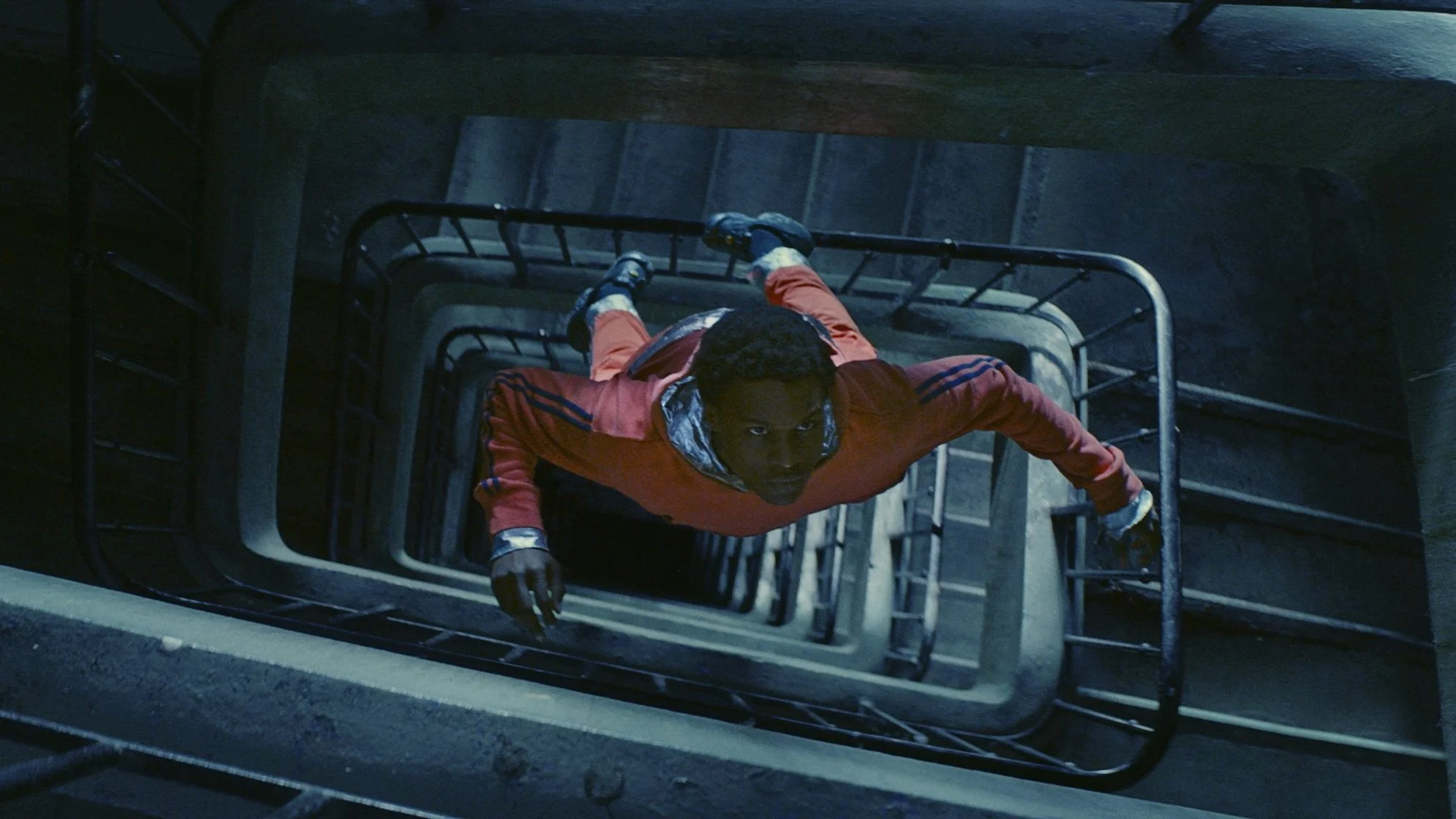Gagarine
A first feature from France takes a fresh approach to the tribulations encountered by those on the underside of society.
It might well have seemed a foolhardy choice when Fanny Liatard and Jérémy Trouilh, who share the writing and directorial credits here, opted to make Gagarine as their feature debut. In turning to a story about the housing projects of the outer areas of Paris they must have been aware that they were following in the footsteps of others. Not only is there Mathieu Kassovitz’s La Haine (1995) which has already become something of a classic but quite recently Ladj Ly gave us his take on the subject in Les Misérables. Nevertheless, what we now have on screen in Gagarine proves to be a wholly distinctive work, a piece on a familiar theme to be sure but one that finds an entirely new way in which to approach it. Just how far it works may be an open question, but that is only because it dares to adopt a style that is so markedly individual.
The film’s title refers to the Cité Gagarine which, located in the south-east suburbs of Paris at Ivry-sur-Seine, was built in 1963 and named after the Russian cosmonaut Yuri Gagarin. The reality of this is confirmed at the outset by newsreel footage of Gagarin attending its opening, but the film quickly moves on to 2019 when plans were in hand to demolish the huge apartment blocks which had been condemned as unfit for human habitation. Nevertheless, some of its inhabitants, many being immigrants from a range of countries, still had affection for it and wanted the buildings to remain. Gagarine centres on one such person, Youri, a black teenager with an absent father and a distant mother who devotes himself to preventing the demolition work and chooses to stay on in his block even when all the other residents accept the enforced evacuation. The key role of Youri is splendidly played by Alseni Bathily who has a notably sympathetic presence.
We do meet others living there including an older woman, Fari (Farida Rahouadj), who acts like a mother to Youri and another youngster, Houssam (Jamil McCraven), who is a friend of his. But these people accept moving on and in some cases regard this as an opportunity for a better life. However, the film stays centred on Youri and presents things from his viewpoint. Consequently, it stresses his obsession with outer space and, when it shows the way in which he secretly stays on in the block and extends his quarters there, it suggests visual parallels between that area and the inside of a space craft. While there Youri continues to be visited by a Roma girl, Diana (Lynn Khoudri), whom he had befriended earlier and, when the encampment where she lives is pulled apart by the authorities, we are invited to see that as a comparable piece of destruction at the expense of outsiders. Even so, the film’s main thrust remains with Youri and with his fantasy notion that space could provide some kind of escape taking him to the moon and beyond, a hope which however bizarre is supported by the film’s mystical conclusion.
Real as the fate of Cité Gagarine is (the voices of actual former residents are heard at the film’s close), Gagarine embraces the dream-like existence that Youri develops and the tone of that is brought out by the film’s music score. If the potential romantic interest inherent in the scenes with Diana verge on the conventional, everything else including stylised visuals add to the sense of the film being a true original. At times it takes on the quality of a poem and this aspect of it is often fascinating. Despite the conditions in which these people live, the film has an affection for ordinary things and finds beauty in the landscape of Ivry-sur-Seine itself. Indeed, it could even be said that Youri’s block becomes a character in the film viewed with the same sympathy that he feels for it himself. These are real qualities, yet the big question is whether or not the stylised representation of Youri’s world replete with its fantasies about outer space makes for a film that we can believe in. I have to admit that for me it doesn’t, even though I was held by Bathily’s performance. However, I readily acknowledge that the very personal vision of Liatard and Trouilh is one that may find other viewers more ready to embrace it and indeed I hope that is the case.
MANSEL STIMPSON
Cast: Alseni Bathily, Lyna Khoudri, Jamil McCraven, Finnegan Oldfield, Farida Rahouadj, Denis Lavant, Cesar ‘Alex’ Ciurar, Rayane Majmessaoud.
Dir Fanny Liatard and Jeremy Trouilh, Pro Julie Billy and Carole Scotta, Screenplay Fanny Liatard, Jeremy Trouilh and Benjamin Charbit, Ph Victor Seguin, Art Dir Marion Burger, Ed Daniel Darmon, Music Evgueni Galperine, Sacha Galperine and Amin Bouhafa, Costumes Ariane Daurat.
Haut et Court/France 3 Cinéma/Canal+/Ciné+/Totem Films/Indéfilms 8-Curzon.
98 mins. France. 2020. Rel: 24 September 2021. Cert. 12A.


